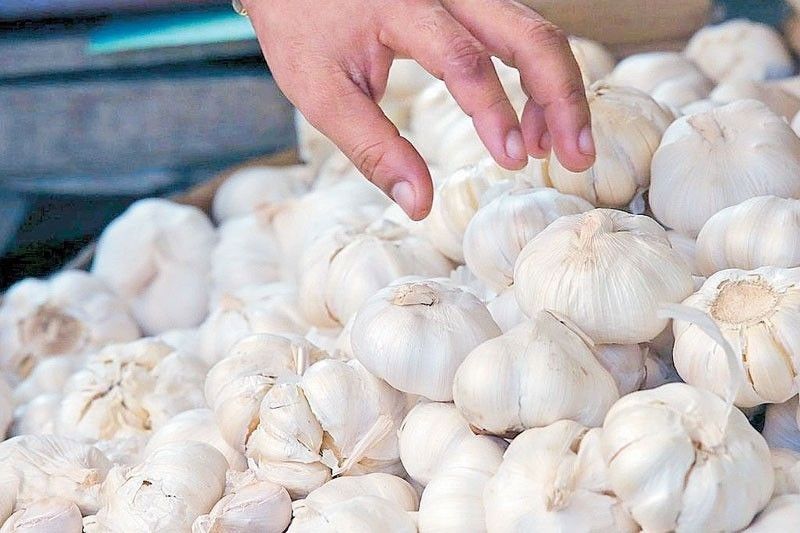Garlic, egg max SRP eyed

MANILA, Philippines — Garlic and eggs could be imposed with a maximum suggested retail price (SRP) to curb possible profiteering, according to the Department of Agriculture.
But DA Secretary Francisco Tiu Laurel Jr. clarified that the proposed measure is on hold as the agency is focused on controlling rice and pork prices.
While a garlic max SRP has been discussed, Tiu Laurel said the proposal was shelved after prices dropped to around P100, down from a peak of P160.
“If prices spike again, we will implement a max SRP,” he said.
The Philippines imports around 95 percent of its garlic supply.
Egg prices are also being monitored by the DA.
Price fluctuations could be attributed to rising demand fueled by election spending and higher chicken mortality caused by soaring temperatures, Tiu Laurel said.
The agency said egg prices ranged between P6 and P8, lower than P10 to P12 reported in some areas.
The max SRP of imported rice declined to P45 per kilo on March 31.
The DA also set a max SRP of P380 per kilo of pork belly and P350 per kilo of pork shoulder.
Price monitoring
Speaker Martin Romualdez yesterday called for the refinement of the DA’s price monitoring system to ensure official data reflects market realities.
The DA and Department of Trade and Industry should have a unified mechanism to allow people to “see the true picture of prices in the market,” he said.
Citing the DA’s “Bantay Presyo” data, Romualdez questioned the differences in egg prices.
The DA data showed large white chicken eggs priced at P8 to P9 per piece, while wet markets sold eggs at P9 to P11 and some supermarkets priced it at P12, he noted.
Accurate real-time data is critical for effective policymaking and preserving the confidence of consumers nationwide, he said.
Integrating more direct input from local vendors and market operators could bridge the gap between official figures and ground realities, Romualdez said.
“The prices of meat and poultry are also increasing because of the issue of African swine fever, lack of storage facilities and the heat of the summer. This cannot be disregarded,” he said.
- Latest
- Trending





























